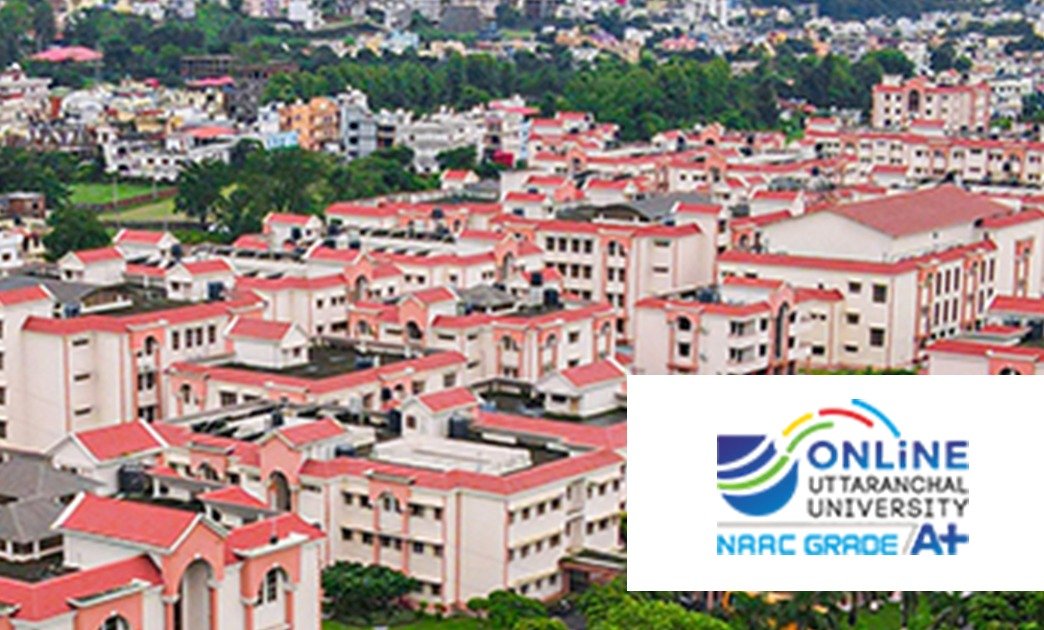Mandatory Approvals for Online & Distance Learning in India – Complete Guide 2025
Introduction – Why Mandatory Approvals Matter in Online & Distance Learning
In recent years, online and distance learning has gained massive popularity in India. With the flexibility to study from anywhere, a wide range of programs, and cost-effective options, many students are choosing online and distance education over traditional classroom learning. However, not every course or university offering online degrees is government-recognized. This is where mandatory approvals for online and distance learning come into play. Without these approvals, your degree may not hold any value for jobs, higher studies, or competitive exams.
In this blog, we will explore the key mandatory approvals that make an online or distance learning course valid in India, who grants them, why they matter, and how you can verify if your chosen program is recognized.
Understanding Mandatory Approvals in Online & Distance Education
Before enrolling in any online or distance learning course, students must check whether the program and university are approved by relevant regulatory bodies. These approvals ensure that the curriculum, faculty, infrastructure, and examination process meet the quality standards set by the government.
The term mandatory approvals refers to the legal permissions and accreditations that educational institutions must obtain before offering online or distance learning programs. Without these approvals, the degrees awarded are not valid for government jobs, private sector employment, or further education.
1. UGC-DEB Approval (University Grants Commission – Distance Education Bureau)
The University Grants Commission (UGC), through its Distance Education Bureau (DEB), is the primary authority that regulates online and distance education in India.
Why UGC-DEB Approval is Mandatory
- Ensures the university has the infrastructure and faculty to run distance and online courses effectively.
- Verifies that the degree will be valid for government jobs and higher studies.
- Confirms that the course content meets academic standards.
Key Points About UGC-DEB Approval
- Only universities recognized by UGC can apply for DEB approval.
- Approval is given for specific courses, not for the entire university by default.
- UGC-DEB updates its list of approved universities and courses every year on its official website.
How to Check UGC-DEB Recognition
Visit the official UGC-DEB portal and check the latest list of recognized universities for online and distance learning.
2. AICTE Approval (All India Council for Technical Education)
If you are pursuing a technical or professional course like MBA, MCA, B.Tech (through ODL), or PG Diploma in Management, then AICTE approval is crucial.
Importance of AICTE Approval
- Ensures that technical programs meet industry-relevant standards.
- Guarantees that the course curriculum is updated and job-oriented.
- Validates that the degree is acceptable for technical positions in both public and private sectors.
Courses Requiring AICTE Approval
- Online or distance MBA / PGDM
- Online MCA
- B.Tech / M.Tech (through distance mode – currently restricted, except for certain conditions)
- Other technical diploma and certification programs
3. NAAC Accreditation (National Assessment and Accreditation Council)
While NAAC accreditation is not mandatory for every course, it is a strong indicator of the university’s overall quality.
Why NAAC Matters
- Universities with high NAAC grades (A+, A, or B++) are considered academically superior.
- Many employers prefer candidates from NAAC-accredited institutions.
- Some scholarship programs and international universities require NAAC accreditation for admission equivalency.
Grades and Their Meaning
- A++ / A+ / A – Excellent quality
- B++ / B+ / B – Good quality
- C – Average quality
4. NIRF Ranking (National Institutional Ranking Framework)
Although NIRF ranking is not a legal approval, it serves as a benchmark for the institution’s performance, faculty, research, and student outcomes.
Why Check NIRF Ranking
- Helps you compare universities offering online and distance learning.
- Indicates reputation and placement performance.
- Useful for identifying top-ranked online universities in India.
5. State Government Recognition
In addition to central approvals, some universities require state government recognition to operate legally within their state.
Importance of State Recognition
- Ensures that the university is authorized to grant degrees within its jurisdiction.
- Especially important for state universities and private universities offering online and distance courses.
6. International Recognition & WES Evaluation
If you are planning to work or study abroad, you must ensure your degree has international recognition.
WES (World Education Services) Evaluation
- WES evaluation confirms whether your degree is equivalent to the host country’s standards.
- Many online degrees from UGC-approved universities are accepted, but it is always better to verify in advance.
7. NCTE Approval for Teacher Education Programs
If you are enrolling in B.Ed, M.Ed, or teacher training programs via distance mode, you must ensure the institution has NCTE (National Council for Teacher Education) approval.
Why NCTE Approval is Mandatory
- Without NCTE recognition, teaching degrees are not valid for teaching jobs.
- Prevents students from enrolling in fake teacher training programs.
How to Verify Approvals Before Enrolling
To avoid falling prey to fake universities and degree scams, follow these steps before joining any online or distance learning course:
- Visit the UGC-DEB Website – Check the latest list of approved universities.
- Visit the AICTE Website – Verify if your technical course has approval.
- Check NAAC and NIRF Websites – See the accreditation grade and ranking.
- Look for NCTE Recognition – If it’s a teacher education program.
- Verify State Government Notifications – For state and private universities.
- Search for Student Reviews – On credible platforms.
Why Enrolling in Unapproved Courses Can Harm Your Career
Choosing an unapproved university or course can lead to:
- Degree Rejection for government and private jobs.
- Ineligibility for higher studies (MBA, PhD, etc.).
- Waste of time and money.
- Legal complications in certain professional fields.
Government-Recognized Online & Distance Universities in India
Some well-known UGC-DEB-approved universities in India offering online and distance education are:
- Indira Gandhi National Open University (IGNOU)
- Amity University Online
- Manipal University Jaipur
- Lovely Professional University (LPU) Online
- Chandigarh University Online
- Symbiosis Centre for Distance Learning (SCDL)
(Always verify the latest approval status before enrolling.)
Conclusion – Choose Wisely, Learn Legally
In the world of online and distance education, mandatory approvals are your safety net. They ensure that your hard work, time, and money translate into a degree that holds value in the job market and for higher education. Before enrolling, make it a rule to check UGC-DEB, AICTE, NAAC, NIRF, NCTE, and state government approvals. Remember, a recognized degree is not just a piece of paper—it is your ticket to a successful career.
If you want a trusted platform to guide you in choosing only government-approved online and distance courses, College Sarathi can help you with verified information, admission support, and career counseling.


















